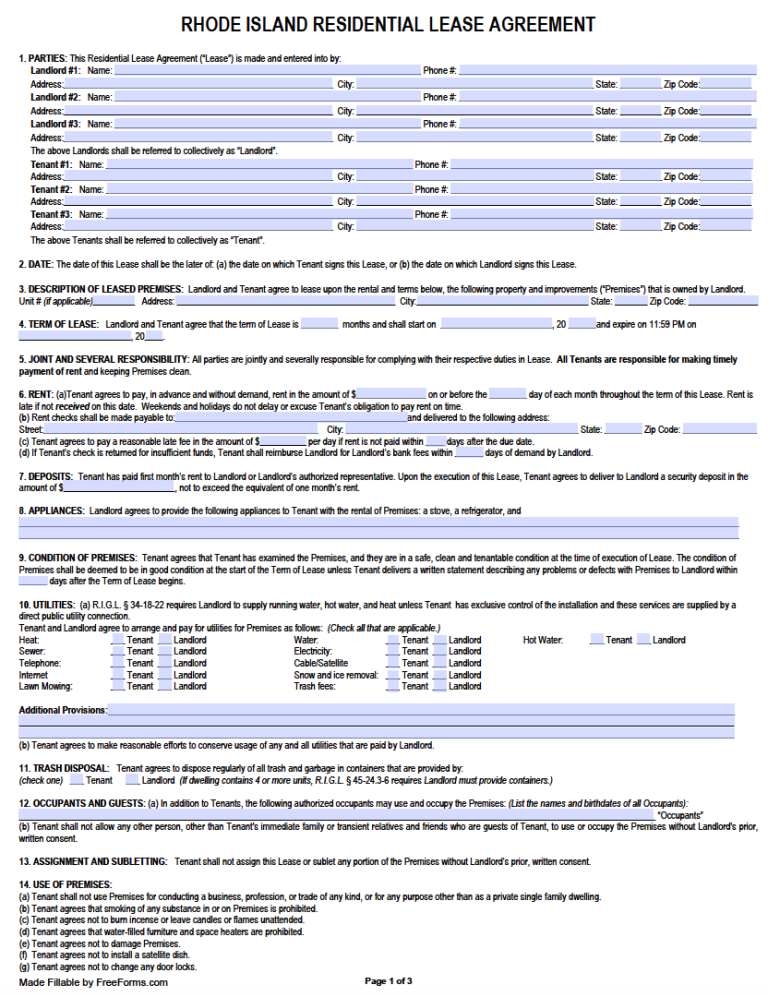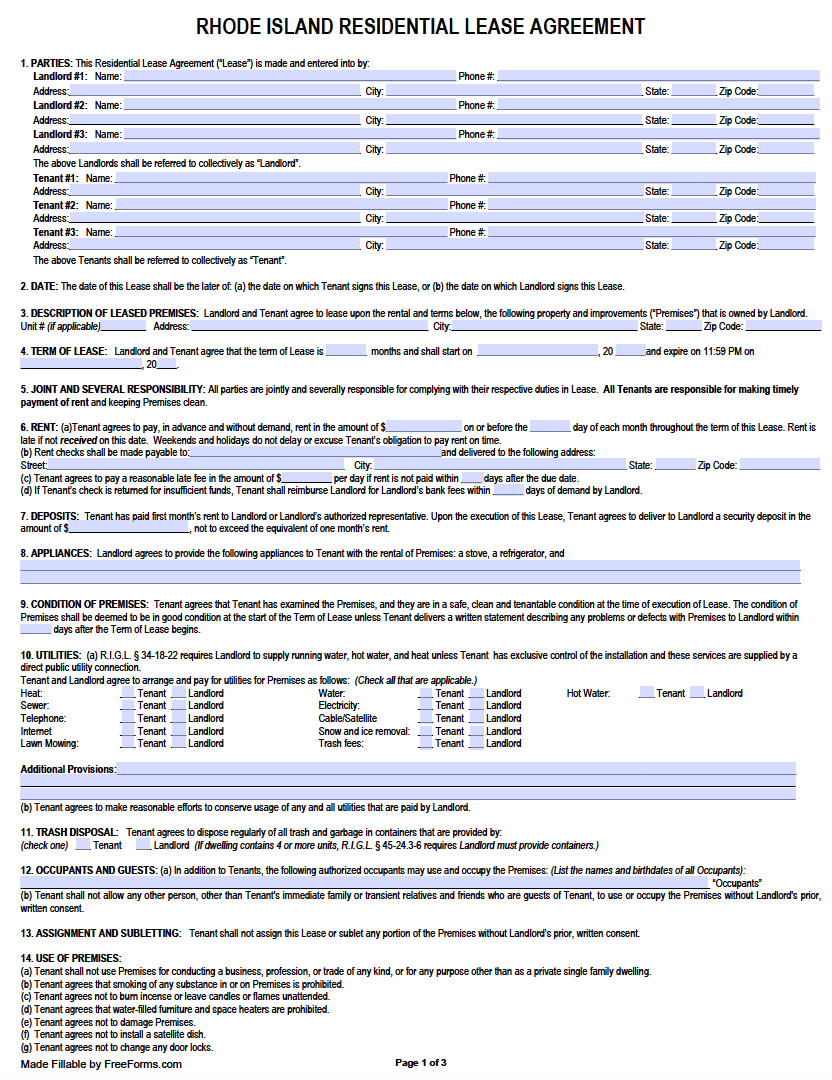Lease Agreements By Type
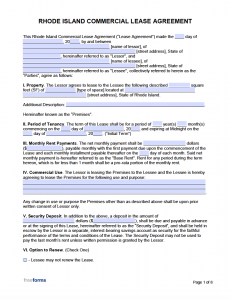 Commercial Lease Agreement – Introduces the terms and responsibilities of each party in the commitment to rent a unit solely for the sale of services or goods.
Commercial Lease Agreement – Introduces the terms and responsibilities of each party in the commitment to rent a unit solely for the sale of services or goods.
Download: PDF, Word (.docx)
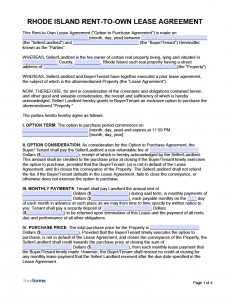 Lease to Own Agreement – Permits an occupant to rent a piece of property with a supplementary possibility to acquire the leased real estate at the end of the rental period.
Lease to Own Agreement – Permits an occupant to rent a piece of property with a supplementary possibility to acquire the leased real estate at the end of the rental period.
Download: PDF, Word (.docx)
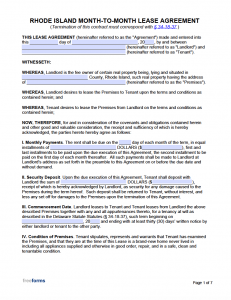 Month-to-Month Lease – Uses a valid contract to rent a space for a specified dollar amount. This particular agreement allows either party to end the agreement early with written notice of thirty (30) days prior to move-out.
Month-to-Month Lease – Uses a valid contract to rent a space for a specified dollar amount. This particular agreement allows either party to end the agreement early with written notice of thirty (30) days prior to move-out.
Download: PDF, Word (.docx)
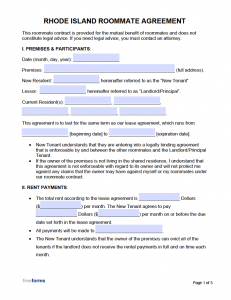 Roommate Agreement – Establishes an arrangement for individuals that wish to rent a portion of a residence from a current tenant or owner.
Roommate Agreement – Establishes an arrangement for individuals that wish to rent a portion of a residence from a current tenant or owner.
Download: PDF, Word (.docx)
Standard Lease Agreement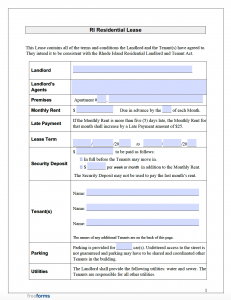 – Attests to the understanding to rent a residential space for an indicated period and financial sum.
– Attests to the understanding to rent a residential space for an indicated period and financial sum.
Download: PDF, Word (.docx)
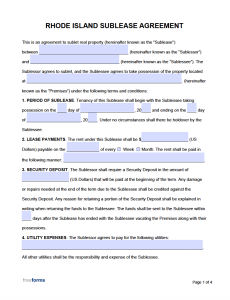 Sublease Agreement – Communicates the intricacies of a lease of a property from a renting tenant to a different party.
Sublease Agreement – Communicates the intricacies of a lease of a property from a renting tenant to a different party.
Download: PDF, Word (.docx)
Additional Forms
HOME Program Lease Addendum – Designated for lessees that are enrolled in the HOME Program, a service that grants affordable housing opportunities to low-income individuals.
Landlord-Tenant Laws
To view the official laws and regulation on relations with property owners and leasing tenants, you can refer to the State of Rhode Island General Laws – Residential Landlord and Tenant Act (§ 34-18).
Required Landlord Disclosures
Identification of the Landlord or Authorized Agents (§ 34-18-20) – Any prospective tenant of a rental unit must be notified in writing of the name and address of the owner for the property they are to rent. If applicable, additional identification of any manging officials for the property is obligated to be disclosed as well. The information is required to be provided either before or at the time the contract is executed.
Lead-Based Paint (42 U.S. Code § 4852d) – Older residences that were constructed in or before 1978 will need an additional notification of the risks involved with contact with paint composed from lead. The Lessor is responsible for including an informational packet on the potential for exposure and warning signs, along with a disclosure form for the tenant to sign.
Code Infraction (§ 34-18-22.1) – When a rental dwelling incurs a housing violation on the local or state level, the tenant must be alerted to the fact within thirty (30) days. If the owner can resolve the issue within the thirty (30) day period, notification is no longer necessary.
When is Rent Late?
The rental payment due date will be confirmed in the lease agreement. If no agreement is in place, it is understood that rent will be due at the beginning of the month. There is no addressed allowable period for rent to be late without repercussions unless no late fee is established in the lease. Should rent be later than fifteen (15) days, the landlord has the right to commence the eviction process by first delivering a written notice to the tenant (§ 34-18-15).
Late Fees
To rightfully receive a late payment from a tenant, language describing the amount charged per-day or per-instance must be present in the lease agreement. There is no limit on the amount a landlord can request within the lease, so make sure to inspect the contract meticulously before endorsing.
NSF Checks
Checks that are returned to the landlord for inadequate account funding will result in the communication of the returned check to the tenant. If the amount of the returned check is not compensated within thirty (30) days of notification, a $25 collection fee will be charged. In addition to the collection fee, the tenant will be obligated to pay three times the amount of the original check amount, but no less than $200 and no more than $1,000 (§ 6-42-3).
Security Deposit Maximum
Deposits allocated to secure leased real estate against default or property damage may not be larger than the total of one month’s rental payment (§ 34-18-19a).
Security Deposit Return
The full security deposit must be returned to the tenant twenty (20) days after either the end of lease term, the date the lessor takes back possession, or the date the tenant supplies a forwarding address. If the lessor is required to clean, dispose of items, or make repairs beyond normal wear and tear, a descriptive list will be issued to the previous tenant stating necessary charges to be subtracted from the deposit amount. If there is any unpaid rent at the termination of the leasing period, the amount owed can also be deducted from the security deposit (§ 34-18-19b).
Landlord’s Entry
The owner or authorized agent may gain access to the domicile with forty-eight (48) hours advanced notice to the occupant during a time deemed as “reasonable” for the tenant. The landlord may enter the unit in case of emergency or for necessary repair or maintenance, should the tenant vacate the premises for more than seven (7) days (§ 34-18-26).
